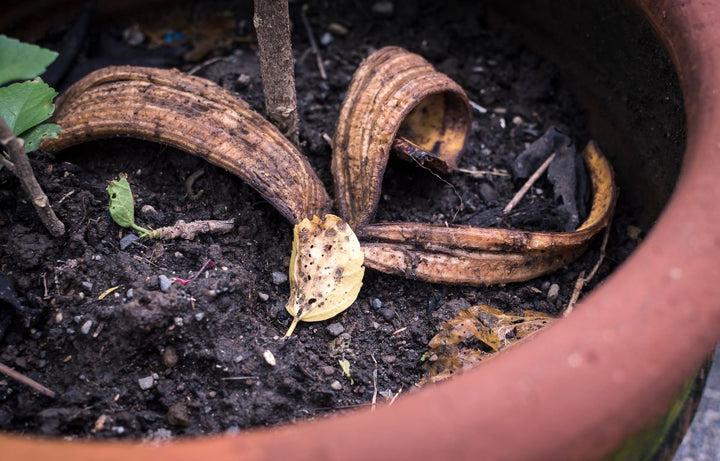
Garden Hacks: Expert Tips and Tricks for Thriving Plants
Garden Hacks: Expert Tips and Tricks for Thriving Plants
Whether you're new to gardening or a seasoned enthusiast, there's always something to learn about caring for your plants in fun, unexpected ways. You can boost plant health, ward off pests, and enrich your soil naturally by repurposing everyday kitchen items and common household products. Let’s discover some of the best garden hacks every gardener should know. From coffee grounds to cinnamon, these tips will keep your garden thriving.

Coffee Grounds as a Soil Booster
If you're a coffee lover, you'll be happy to know that used coffee grounds can be a valuable addition to your garden! Rich in nitrogen and other essential minerals, coffee grounds can give plants like roses, azaleas, and tomatoes a helpful boost. Simply sprinkle them around the base of your plants to enhance soil quality. The grounds also attract earthworms, which naturally aerate the soil, helping roots breathe. Avoid using them too frequently, as too much acidity can alter your soil's pH levels over time.

Eggshells for Calcium-Rich Soil
Eggshells are packed with calcium, a nutrient that plants need for cell growth. Crush them up and scatter them around plants like tomatoes, peppers, and broccoli that thrive on calcium-rich soil. Eggshells can also help prevent blossom end rot, a common issue in tomatoes caused by calcium deficiency. For an extra boost, add crushed eggshells to your compost or even mix them directly into the soil. It’s a great way to repurpose kitchen waste while giving your plants the calcium they need.

Banana Peels as a Natural Fertiliser
Banana peels are another excellent garden hack, loaded with potassium, magnesium, and other essential nutrients. Simply bury banana peels a few inches below the surface near the roots of potassium-loving plants like roses and vegetables. You can also soak banana peels in water for a few days, creating a nutrient-rich "banana tea" perfect for watering plants. This eco-friendly fertiliser promotes stronger root development, healthier blooms, and tastier veggies.
Cinnamon to Prevent Mould and Fungus
Cinnamon isn’t just for baking; it’s a natural anti-fungal agent too! If you’re dealing with mould or fungus on your seedlings, a light dusting of cinnamon on the soil surface can work wonders. This trick is especially useful for indoor plants and seedlings, which are more susceptible to mould in moist environments. Additionally, cinnamon is great for deterring ants, making it a multipurpose tool in your gardening kit.

Baking Soda for a Mildew-Free Garden
Baking soda has many uses beyond the kitchen. It’s an effective, natural way to prevent powdery mildew and fungus on plants like cucumbers, zucchinis, and roses. Mix a tablespoon of baking soda with a litre of water and a few drops of dish soap to create a mild fungicidal spray. Apply it to affected leaves once a week or after rainfall. This solution helps balance the pH on plant surfaces, making it harder for fungi to grow. However, use it sparingly as too much baking soda can alter your soil’s pH.
Vinegar for Weed Control
Vinegar is a natural weed killer that can tackle unwanted growth. Be cautious, though – vinegar is non-selective and will kill any plant it touches, so use it sparingly and directly on weeds only. Pouring white vinegar onto weeds in pathways or driveway cracks is an effective way to keep them at bay without harsh chemicals. For extra strength, add a little dish soap to the mix.
Epsom Salt for Magnesium Deficiency
Epsom salt, rich in magnesium and sulfate, can give plants an extra nutrient boost. It's especially beneficial for roses, tomatoes, and capsicum, which require magnesium for chlorophyll production and better flowering. Dissolve a tablespoon of Epsom salt in a litre of water and use it to water your plants once a month. This can enhance plant growth and help leaves stay lush and green.

Companion Planting for Natural Pest Control
Companion planting is a clever way to reduce pests and improve plant health by pairing plants that benefit each other. For instance, marigolds can deter nematodes and aphids, while basil planted next to tomatoes can enhance flavour and reduce pests. Mixing compatible plants creates a naturally balanced ecosystem that reduces the need for pesticides and promotes healthier growth.
Mulching to Retain Moisture and Reduce Weeds
Mulching is a simple yet effective practice that conserves moisture, suppresses weeds, and enriches soil. Organic mulches like straw, grass clippings, or wood chips break down over time, adding nutrients back into the soil. A layer of mulch also helps regulate soil temperature, keeping plant roots cool in summer and warm in winter.
Rainwater Collection for a Sustainable Garden
Collecting rainwater is a fantastic way to conserve water and provide your plants with the most natural hydration. Place a barrel or container under your downspout to capture rainwater, then use it to water your garden. Not only does this save on water bills, but rainwater is also free of chemicals found in tap water, making it a healthier choice for your plants.
Using these tips and tricks, you can save money, repurpose everyday household items, and enjoy a healthier, more sustainable garden. Keen to read on? Check out this blog on Plants that Love Full Sun. For those looking to revamp their outdoor space, our guide to the top 10 outdoor plants for Melbourne gardens will help you choose resilient and stunning plant varieties.
